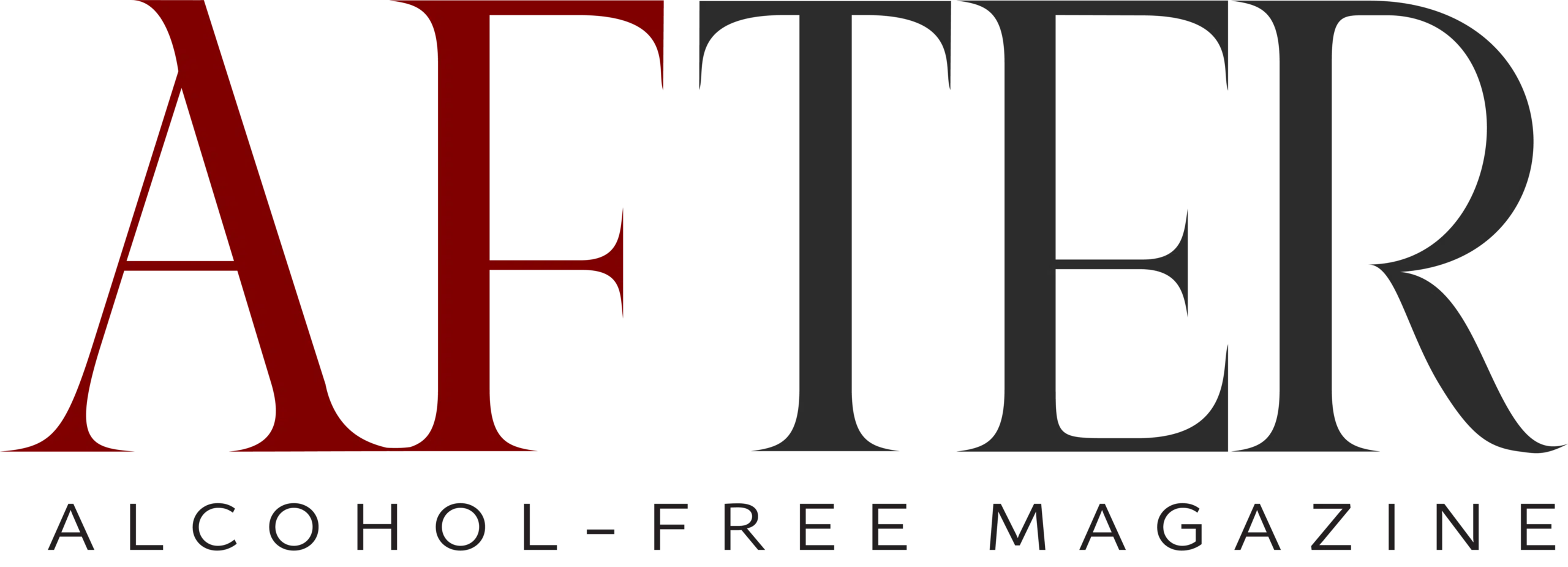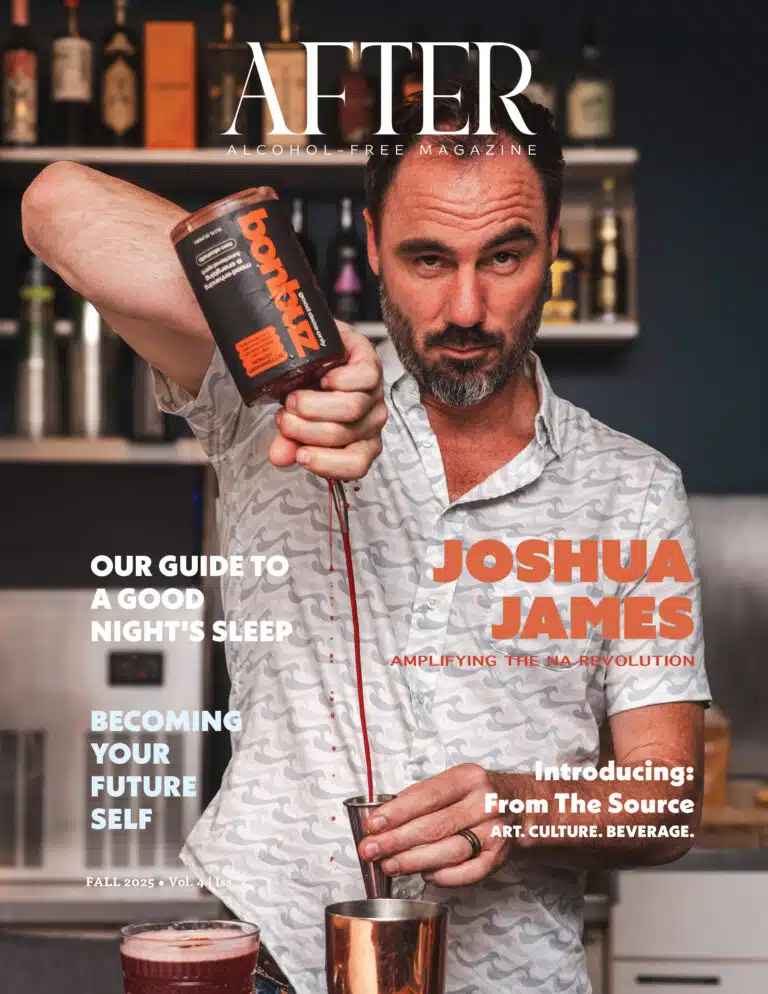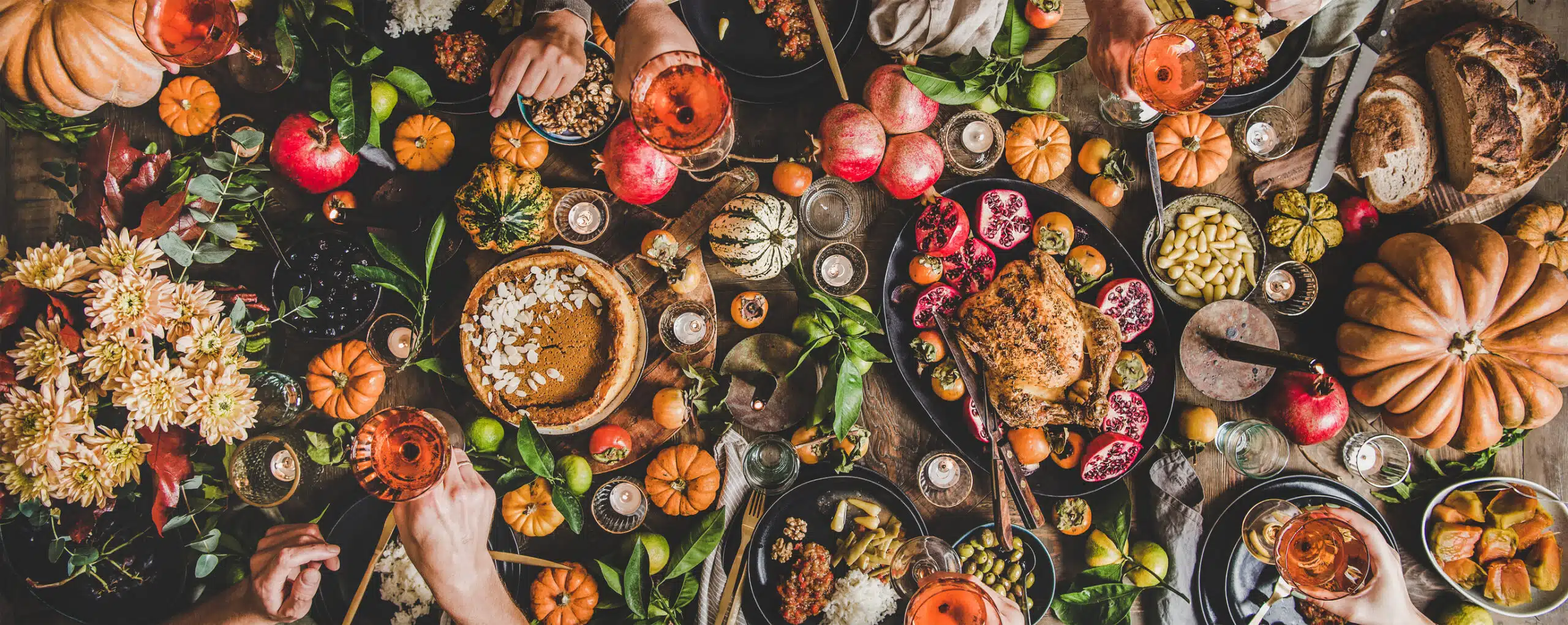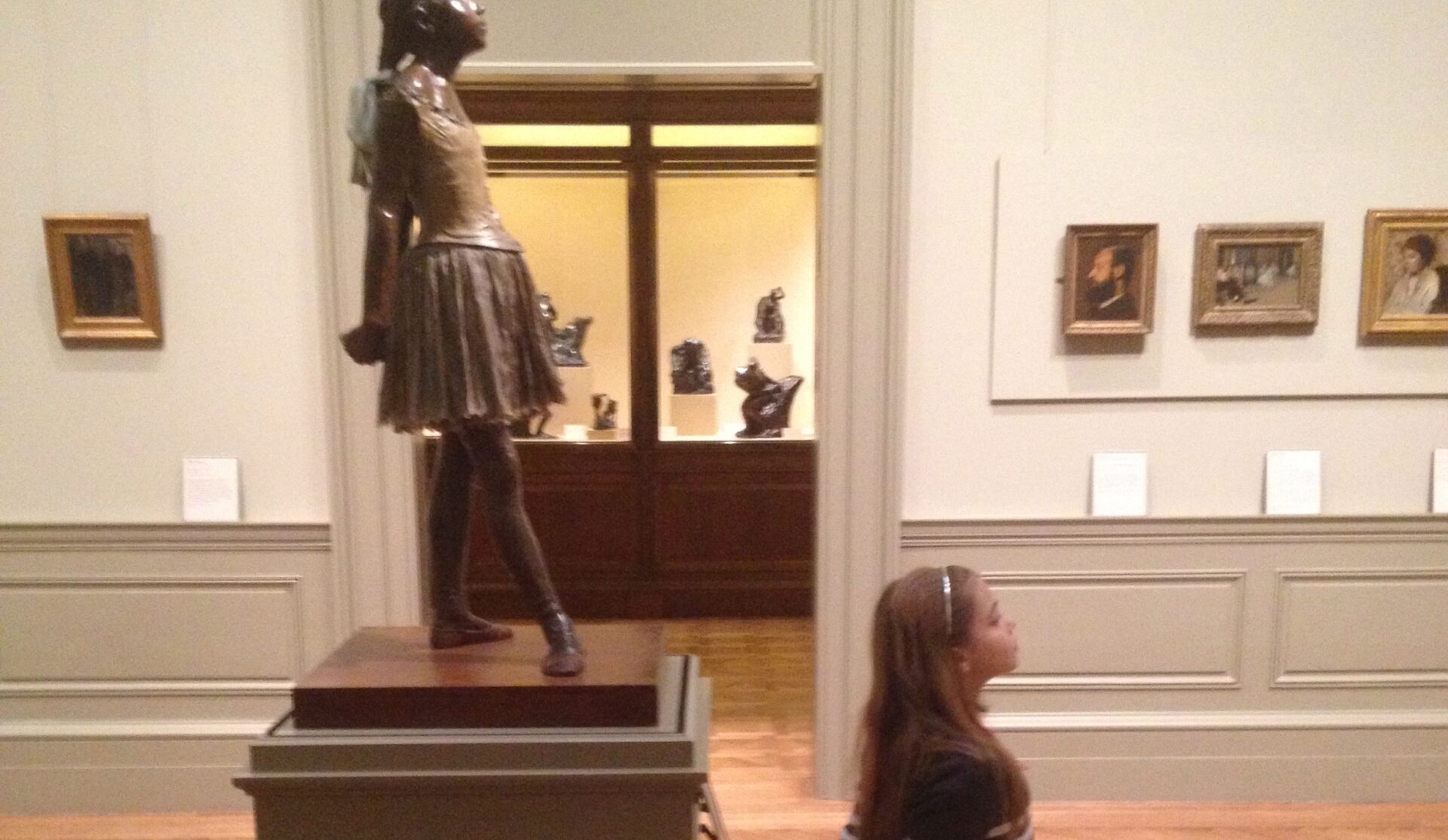Photo credits:: Sam Cohen @capturedbysamphotography
Nicole Pietrandrea Hough for AFTER: I remember the first time we met [at a Sans Bar party in 2022] and you mentioned you were working on this book called Dry Humping and I thought, “That’s so freakin clever!” And now I’ve just finished reading it! There’s a lot to unpack here. Let’s start with you, and then we’ll talk about the book and some key points.
At what point did you know you had to write this book?
Tawny Lara: When I first got sober—November 30, 2015—the thought of dating, let alone having sex, without alcohol scared the hell out of me. In 2015 the sober world was not what it is now. It was still very traditional AA. “Sober curious” wasn’t a household term yet, and there were not a ton of resources on sober dating and sober relationships. The ones that were out there—like a fabulous book called Sex In Recovery by Jennifer Matesa which I highly recommend—were written with a 12-step perspective. That helped me quite a bit but, as you know, 12-step was not part of my journey. So I wanted to put a resource out there that younger-me needed back then. [My book is intended] for sober-curious people, or anyone who just wants to be more mindful of the way that alcohol intersects with their love life. I’ve tried to use as much inclusive language as possible because it really is meant for everyone.
N: I noticed it is very inclusive in terms of alcohol, sexuality, gender, and all different perspectives.
T: I interviewed dozens of people for this book: mental health professionals, doctors, neurologists, biochemists…. I wanted to understand the science. Then I interviewed regular people: sober, sober-curious, “normal” drinkers. I wanted to really understand everyone’s perspective on relationships and alcohol. I’m not anti-alcohol. If you can find a healthy relationship with alcohol, then good for you. I will say I am anti the societal norms that alcohol has created. I’m anti-big-alcohol. And I want to encourage people to get creative and think outside the box when it comes to dating and alcohol. Don’t just say, “Let’s grab a drink.” Let’s get creative here.
When I first got sober, the thought of dating, let alone having sex, without alcohol scared the hell out of me.
N: There’s so much around this. You touch a lot on this general need people have in our society to boost ourselves with alcohol to basically convince ourselves to do something we don’t really want to do. This really spoke to me. I stopped drinking three years after the end of my marriage. So I was dating and trying to explore this and it was a very interesting kind of scary process. People would be like, “How do you even do that?” Or people I was dating would say, “Will you even be attracted to me if you’re sober?” Everybody feels that they need alcohol to bolster themselves—or need the beer goggles. It’s a very interesting message in our culture.
T: It’s true, sometimes your sobriety or sober-curiosity is seen as a mirror to the person you’re dating, or even a family member or a friend, and they might feel defensive. Like they have to explain the reason that they drink. And it’s like, I don’t care, I just don’t, because this is what works best for me—there’s no judgment. But I had that kind of similar sober dating experience, where people either wanted to talk about sobriety all the time, or they treated me like their armchair therapist on a date to unpack their relationship with alcohol. Some people tried to convince me, “You can’t even have just one?” I’m just like, “Why is it like this?” But as you know, because you’ve read the book, there are conversation starters in there to help the reader feel armed with these tools, when they are going out on their first sober dates or when they are having sober sex for the first time. How to have these conversations because we weren’t taught that. We weren’t taught how to advocate for ourselves, especially as women. That can mean asking for what you want in bed, and it can also mean speaking up when it comes to deciding which restaurant to go to on a date. You would not believe how many women are afraid to speak up on that.
N: That leads to my next question: The first section of your book is about getting comfortable with yourself [and building up that confidence] before getting into a sexual sober relationship. Can you talk about why one should focus on that and how to do it?
T: So the book is split into three different sections. The first section is about dating yourself, getting to know yourself, and dating in general. The middle section is about sober sex. The third is about sober breakups and long-term relationships. You can’t have a book about sober dating without talking about breakups so I had to include that. But as you know, the recurring theme of the book really is advocating for yourself. And when I say “dating yourself,” I’m not just talking about bubble baths and face masks and taking a yoga class. I’m talking about really getting present with who you are and why you were relying on alcohol in the first place—whether it’s one drink to curb first date jitters, or drinking until you black out so you can do something that you really don’t want to do in bed. There’s a huge gray area there. Dating yourself is about really doing the work to figure out who you are without that drink. That work is best done in peer support groups, with a therapist, with trusted friends, through journaling, stuff like that.
N: That’s a journey we write about a lot in the magazine: getting to know yourself, trusting your intuition [see Reconnecting With Our Inner Knowing, pg.20], asking for what you want. You’re right, we’re not taught any of those things. I still have trouble telling people where I want to eat, of all things.
T: It’s funny because I also used to struggle with that. And actually, in doing all of this dating myself work, I realized it was a form of people pleasing. Someone pointed out to me that if someone asks where you want to eat dinner they genuinely want to know what you want to eat for dinner. And if you just say, “Oh, whatever you want, I don’t really care,” you’re actually putting more work on them. You’re making them make the decision.
Although to be fair there are definitely times when I really don’t care—just take me somewhere and feed me—right? But I think it’s important to discern the difference between the two.
N: Let’s talk about the phrase “liquid courage.” I was thinking about the times when people say this: in dating situations, talking to people that are attracted to, and before singing karaoke—all these moments when you want to do something vulnerable.
T: We all have that thing we did where we would feel a little bit more calm and confident after a drink. The main thesis of the book is to remind readers that [you don’t need liquid courage because] you already have intrinsic courage—it’s already in you. You don’t need to outsource your confidence to alcohol. The book gives tangible advice on how to really get in touch with this innate courage so you don’t have to rely on “liquid courage.”
The example I use in the book is from the story of Dumbo, they give him that “magic” feather to show him he can fly. But he eventually realizes he hadn’t needed the feather all along. I think liquid courage works the same way. When you get sober, you realize you used alcohol to do all of these things that you thought you couldn’t do without it.
N: I relate to that. I think a lot of people relate to that.
T: It’s relatable whether you’re sober or not. I interviewed a lot of people who drink alcohol who have a healthy relationship with alcohol, and everyone related to the concept of liquid courage.
N: You have a quote somewhere that says, [liquid courage] is not actually courage. It’s just a gradual erosion of your ability to make rational decisions.
T: That’s a quote from Amanda White. She has a popular Instagram account called “Therapy for Women.” She gives really good tangible advice as well.
N: I have two teenage kids and when I talk to them about alcohol, one of the things I say is if you hear a voice in your head saying, “I’m not fun unless I drink,” or, “I can’t do this unless I drink,” that should be a red flag and you should ask, “What’s actually going on here?”
T: I’m so glad that you’re teaching your children that. I feel if I’d been introduced to alcohol in that way, my relationship with alcohol could have been totally different. I don’t blame my parents or anything. It was just a different time. We didn’t talk about that kind of stuff back then. I was introduced to alcohol at a party and someone was like, “Drink this, you’ll get fucked up.” And I was like, “All right.”
N: Yep, pretty much. And the rest is history. I was like, “Wow, I AM more fun!” Like, immediately, day one.
T: It is, it’s instant. And that’s one of the most popular questions that I get in my line of work: “How do I have fun on a date without alcohol?” “How do I have fun in the bedroom without alcohol?” The bad news is there’s not this one-for-one replacement for tequila in this situation. The replacement is [getting to know yourself and] doing a whole bunch of work on yourself. It’s not fast. This is why in the book when I’m talking about dating yourself, you have to find ways to fill that void. You can’t just stop going to boozy brunch. You have to replace boozy brunch with something you love. And that’s hard. People have a hard time with that.
N: Right, like what am I going to do now?
T: What am I going to do now? Who am I going to do it with? All my friends go to boozy brunch so what am I going to do? In early sobriety, I filled up my schedule with writing classes, studying Spanish, traveling…finally doing things that I always wanted to do because I had a surplus of time. I was no longer going to boozy brunch and partying hard every night. And I also was no longer racking up really expensive bar tabs so I had money to put toward those classes that I really wanted to take.
N: Sober hobbies are a real thing. Like you said, you have to fill the time with something that gets you outside of yourself so you’re not sitting around feeling sorry that you can’t go to boozy brunch.
T: Yes and the more you do that, the more you develop that intrinsic courage I’m talking about. The more writing classes I took and the better I became at Spanish, and the more confident I felt because I was improving my skills. And that’s going to show up on dates, that’s going to show up in the bedroom, that’s going to show up at work, it might help you stand up to a dysfunctional family member…. The more you get to know yourself, the more confident you’re going to be, the less BS you’re probably going to put up with, and the more likely you will advocate for your own boundaries.
N: It’s like a cascading effect.
T: It’s a domino effect. Whether you’re single or in a relationship you have to nurture your relationship with yourself every day, [there’s no finish line]. At least that’s what works for me, and a lot of the people that I interviewed. But it’s not as easy as a shot of tequila—I’m sorry.
N: But so much more worth it. We mention in a lot of articles that the process of getting sober starts after you give up alcohol.
T: I think there’s a common misconception. It’s like “Once I quit drinking, everything will be better.” And the reality is, no, that’s actually when the journey begins. For me and many other people I’ve interviewed, alcohol is very rarely the problem. It’s usually the symptom of a much larger problem. For me, when I quit drinking and I got in therapy, I realized that I was self-medicating anxiety, depression, PTSD, body dysmorphia, all of the stuff that I didn’t have the language for. It was just easier to drink instead of feel those things. Now I’m on medication, I’m in therapy, and I’m properly medicating those issues that I struggle with, as opposed to just drinking and pretending that they’re not there.
N: We have an article in this issue about making friends as an adult (see Making Friends as an (Alcohol-Free) Adult by Sarah Olsen, pg.16) and I thought that section of your book was interesting, as well as your ideas on how to tell a potential date that you’re sober. What are some best practices here? I’m working on this myself both dating- and friend-wise.
T: It’s difficult to make friends especially as an adult. There’s a great book on this topic called You Will Find Your People by Elaine Moore. I made quite a few friends when I was taking classes. Whether they drank or not, it didn’t matter, because our friendship was based on a shared interest, as opposed to just meeting for drinks. Early sobriety can be really difficult because you’re learning. You’re deserting your “real” friends and your drinking buddies. I was not prepared for that level of pain. I think the more you take care of yourself and nurture your relationship with yourself, the less you’re going to allow your friends to mistreat you. You’re not going to allow a “friend” to convince you to have just one drink. So that’s a really roundabout way of saying the best way to make friends is really to find new hobbies. If the internet has taught us anything, it’s that there’s a thriving subculture for everything.
N: That’s true. That was something I discovered more recently when I joined some hiking groups.
T: I spent a lot of time volunteering in early recovery. I volunteered for recovery nonprofits working with at-risk LGBT youth. Find organizations that align with your values. It’s going to be incredibly rewarding, you’re going to meet other like-minded people, and you’re just going to feel better because you’re giving back. I can’t recommend that enough because it’s all connected. Yes, the book is about sober sex and dating, but it’s really about relationships. And we as humans have all different types of interpersonal relationships.
The bad news is there’s not this one-for-one replacement for tequila in this situation. The replacement is [getting to know yourself and] doing a whole bunch of work on yourself.
N: The fastest way to feel better is to give back.
T: That can look like anything. I worked with an organization called New Alternatives. They help homeless LGBT youth, and every Sunday, they have a Sunday dinner and I’d volunteer. I would help cook and then serve food. I’ve also done volunteer work helping people write resumes. There are so many different ways you can give back.
N: Let’s talk about communication and boundaries in romantic relationships.
T: Alcohol is the great disinhibitor, of course, but that also means that it’s hindering our communication. And by that, I mean if you don’t know how you really feel about something, you are unable to communicate that, and then your partner is unable to understand what you need. This all sounds quite simple. But I did not have a healthy line of communication in any relationship until I quit drinking. There’s a chapter in the book about how to fight. It’s important to have healthy fights and disagreements in relationships. The old me would have thought fighting was bad—you shouldn’t fight, everything should be great. But a healthy relationship has disagreements. I’m not talking about screaming matches—I’m talking about constructive and productive disagreements. If your relationship doesn’t have that someone’s usually withholding or people-pleasing, or some version of that. The more time that I spent—and still spend—getting to know myself, the better I’m able to communicate in my relationship with my partner, the more I’m able to advocate for what I want in the bedroom, the easier it is for me to tell [my partner] where I actually want to eat dinner.
It’s difficult to communicate when you’re drunk. On a very basic level, you might be slurring, you’re not going to remember what you’re talking about…or you’re going to maybe say something you regret. There are just so many things that can go wrong with drunk fighting.
N: So let’s talk a little bit more about sex and alcohol. First of all, I learned a new word from your book, anhedonia. I remember experiencing that, but I didn’t know there was a word for it.
T: Anhedonia is the inability to feel pleasure. There are so many people who could speak to this better than I can. But from my research and personal experience excessive alcohol use can contribute to a lot of sexual dysfunction. That can mean erectile dysfunction, it can mean the inability to get wet, it can mean the inability to advocate for what you want in the bedroom. And it could also mean the inability to feel pleasure. We cannot selectively numb emotions. And if we’re drinking to curb those first-date jitters or to get up the courage to try something new in bed, then, while the alcohol might be numbing that anxiety, it’s also numbing your body. So you’re not feeling pleasure, or maximum pleasure. You’re actually doing yourself a disservice sexually if you are only having drunk or buzzed sex because alcohol is a central nervous system depressant and that means it is numbing your body. I could not wrap my head around this idea [for a long time] because I was under the assumption that drunk sex is better, because you’re less inhibited, and it’s more fun and you get freakier. And it is not; it’s a fallacy.
N: I remember that feeling of [having over-numbed everything]—not enjoying parties, not enjoying social interactions, or sex, or good food. It just all felt kind of blah. I knew it had to do with alcohol, but I wasn’t ready to admit it. Things are so much brighter, and your physical response is so much more vibrant without it.
T: Yes, and, this is also where the biphasic quality of alcohol comes in. I’m not talking about when you just have one drink or half a drink. I’m talking about excessive alcohol use that can lead to prolonged sexual dysfunction, and anhedonia, over time.
N: I love the Brené Brown saying that you quote in the book about how we can’t selectively numb our emotions. That really speaks to me. I remember when I watched her TED talk, and thought, “Oh, my God, this is life-changing.”
T: She’s a trailblazer. I mean, she’s the shame and vulnerability researcher. That’s a lot of what sobriety and recovery is. It’s getting in touch with your vulnerability, it’s no longer self-medicating shame. Sobriety is so much more than not drinking.
N: So you briefly mentioned getting freaky earlier. There’s a section [in the book] about discovering who you really are sexually. How does one go about starting that process?
T: I recommend masturbation to everybody. Everyone should definitely spend time with their own body. I also want to acknowledge that I reference asexuality in the book several times, so I want to hold space for that here. There are people who are just not interested in masturbation or sex, and that’s totally fine. I’m going to go on a slight tangent here. This book is really about sexual liberation from alcohol. I used to think sexual liberation meant things like orgies and free-the-nipple. But my research and many, many interviews showed me that sexual liberation can mean anything including realizing you don’t like sex. It’s possible you used alcohol to [try to] like sex and then you got sober and realized you don’t actually like it. That is sexual liberation just as much as trying something new in the bedroom or going to a sex party. It’s a spectrum. Sexual liberation can also mean realizing maybe you don’t like penetrative sex, maybe you don’t like oral sex, or you’ve discovered something new that you do like. We have ideas of what sex should be ingrained from reading articles growing up like, “Three things you must do to please your man…”
There’s all this pressure and it’s like, “Wow, I really have to do a lot here.” So for me, a big part of my recovery was unpacking all of that, unlearning the messaging, and then redefining what I want sex to be, for me and in my relationships. So, masturbation is the answer to your question. But on a broader level, figure out what you want sex to be. How do you and your partner define sex? As long as everyone involved is happy and satisfied, that’s what matters.
N: We all assumed that liberation meant being more sexual, but liberation is really being free from expectations.
T: Exactly. It’s the liberation from sexual expectations, especially for women and nonbinary folks who were not taught that. If you were lucky enough to receive sex ed, it was all very phallocentric: How to avoid semen. How to not get pregnant. That’s it. There’s no talk of clitoral stimulation or female pleasure at all. It’s also such a heteronormative approach. There are so many other sex acts that are not talked about.
N: Let’s talk more about the queer community: What are some specific challenges? I think getting in touch with who you are sexually has a bigger meaning among the queer community.
T: A lot of people that I interviewed, once they got sober, were able to embrace their trans identity. They were able to embrace their queer identity. There are so many letters on our beautiful rainbow. I’m the proud “B” of the LGBT, but there’s definitely something to say about the disservice the gay bar does to the queer community. Alcohol and drugs are so pervasive in the queer community. We are twice as likely to develop substance use disorder, because of many reasons that all are under the stigmatization umbrella. But the reason that we flock to the gay bar is because it’s this rite of passage. You turn 18, or you get a fake ID, and you go to the gay bar, and that’s where you find your people. That’s where you meet people [maybe for the first time] who are like you. If you come from a home where you are not able to fully be yourself, if you can’t be out and proud around your friends and family, there is this safety that you find in the gay bar. And when that safety is found among a sea of drugs and alcohol, you can see how damaging that can be.
It’s also worth noting that the prefrontal cortex of our brain does not fully develop until we’re 25. So we’re using these substances when our brains aren’t fully developed. The prefrontal cortex is how we make decisions, that’s how we advocate for ourselves, that’s how we form our personality. So if we are self-medicating at such a young age, we’re really hindering our brain development at this point. And that’s for everyone, not just queer people.
I think it’s important to acknowledge that there are a lot of sober queer resources popping up now. And also, people are just interested in drinking less in general right now. There’s dry dating. People might still drink alcohol, but they want sober dating. They don’t want alcohol on their dates. I’m really glad that we’re living in that time.
N: For sure. People are much more open-minded and receptive in general to these kinds of things.
T: Yeah, it’s refreshing. There’s a lot more visibility now than there used to be. With social media, we’re able to see all different types of queerness with pride, so you don’t necessarily have to go to the gay bar to find that community anymore. Every culture is represented online and there are some peer support groups for queer sober people. Gay and Sober is a nonprofit that’s fantastic. The nuances of queer and sober, sober moms, sober writers, sober…all these intersections need to be acknowledged. Sober Black Girls Club acknowledges the intersection of systemic racism and how that contributes to substance use disorder. We weren’t talking about any of this before.
N: No, never, right? That is an area of concern to me, and I’m glad that people are addressing how marginalized communities have higher rates of alcoholism and substance use disorder. The correlation, I’ve always assumed, is when you can’t express who you are, or when your community is marginalized, then you’re going to be driven to find ways to fit in, and a lot of times that involves alcohol.
T: Absolutely. Even when you go to a peer support group that’s not inclusive, that can be very damaging. For example, if I were to go to just a regular peer support group, and talk about the struggles of being a bisexual woman in recovery, I wouldn’t really be held there. I need to be around other queer people who understand that very particular intersection of queerness and substance use disorder. That visibility has been tremendous for me in my recovery. And I know other people…that’s why Khadi [Oluwatoyin] started Sober Black Girls Club because she couldn’t go to meetings and talk about that intersection of race and substance use disorder, so she made a place where she could talk about it.
N: To come way back to what you said earlier, I appreciate that you included asexuality in a book about sexuality because it’s really about knowing yourself, not about what kind of sex you’re having, or how much.
T: Yes, that was one of my biggest takeaways from this research. I interviewed, several asexual sober people and the recurring theme was that they had used alcohol, to try to make themselves “be normal;” to try to make themselves like sex. Then they got sober and realized, “I don’t even like this. Why have I been doing this?” And while I’m not asexual, I could 100% relate to that impulse to drink in order to feel normal, in order to make myself do something that I thought I should do.
N: It is amazing how many fall into this category.
T: Totally. It could be something as big as having a sexual revelation, but it could also be like, “Why do I eat this food? I don’t even like it.” “Why do I go to happy hour every Friday? What am I even doing here?” When you give up alcohol and you find freedom outside of that, you really meet the real version of yourself. It’s a humbling experience and really powerful. I’m just so glad I woke up and I decided to really get to know myself.
N: It’s a beautiful thing, right? It was unexpected for me. I was like, “Alright, I gave up alcohol. I’m doing well.” But then this whole journey…. I didn’t expect it.
T: I really just thought giving up alcohol meant just living my normal life without alcohol but it is significantly more than that.
N: So that’s a perfect lead-in to the last question we always ask: Our slogan at AFTER is “The best life begins AFTER giving up alcohol. How would you characterize your AFTER?
T: Oh, I love this question. The reason that I quit drinking was because I wanted to focus on my writing. I was in a pub with some friends talking about how I don’t have enough time to write. On the walk home, I was like, “Wow, I just spent four hours in the pub, talking about how I don’t have time to write. Maybe there’s something there.” And, spoiler alert, there was. My writing career has flourished since I quit drinking. And that is 100% my AFTER. I lived by the old Hemingway adage, “Write drunk, edit sober.” I thought I was so prolific when I was wasted…I was wrong. Actually being present makes me a better writer. So my AFTER is 100% I got out of my own way, I got very focused on my writing, and I wrote a book.
N: Amazing, and it’s a great book!
***
Get your copy of Dry Humping here:
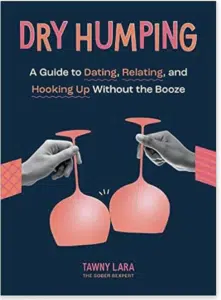
Dry Humping by Tawny Lara
“When you’re intimidated or overwhelmed, it’s easy to turn to alcohol to feel more relaxed and outgoing. But what if you want to cut back or cut out alcohol from your life? What do you do on dates? How do you soothe worries and hang-ups? And how the heck do you get up the nerve to be naked with someone new?
In Dry Humping, you will learn how to have better dates, sex, and partnerships with tools like:
- Booze-free date ideas
- Scripts for awkward conversations
- Interviews with experts
- Thought-provoking prompts
- Perspectives from a diverse range of regular people
- And more!
You don’t need alcohol to have a fun, carefree, fulfilling dating life. Dry Humping offers you the tools to step away from alcohol, for however long you want to, while also having more fun in and out of the bedroom.”
